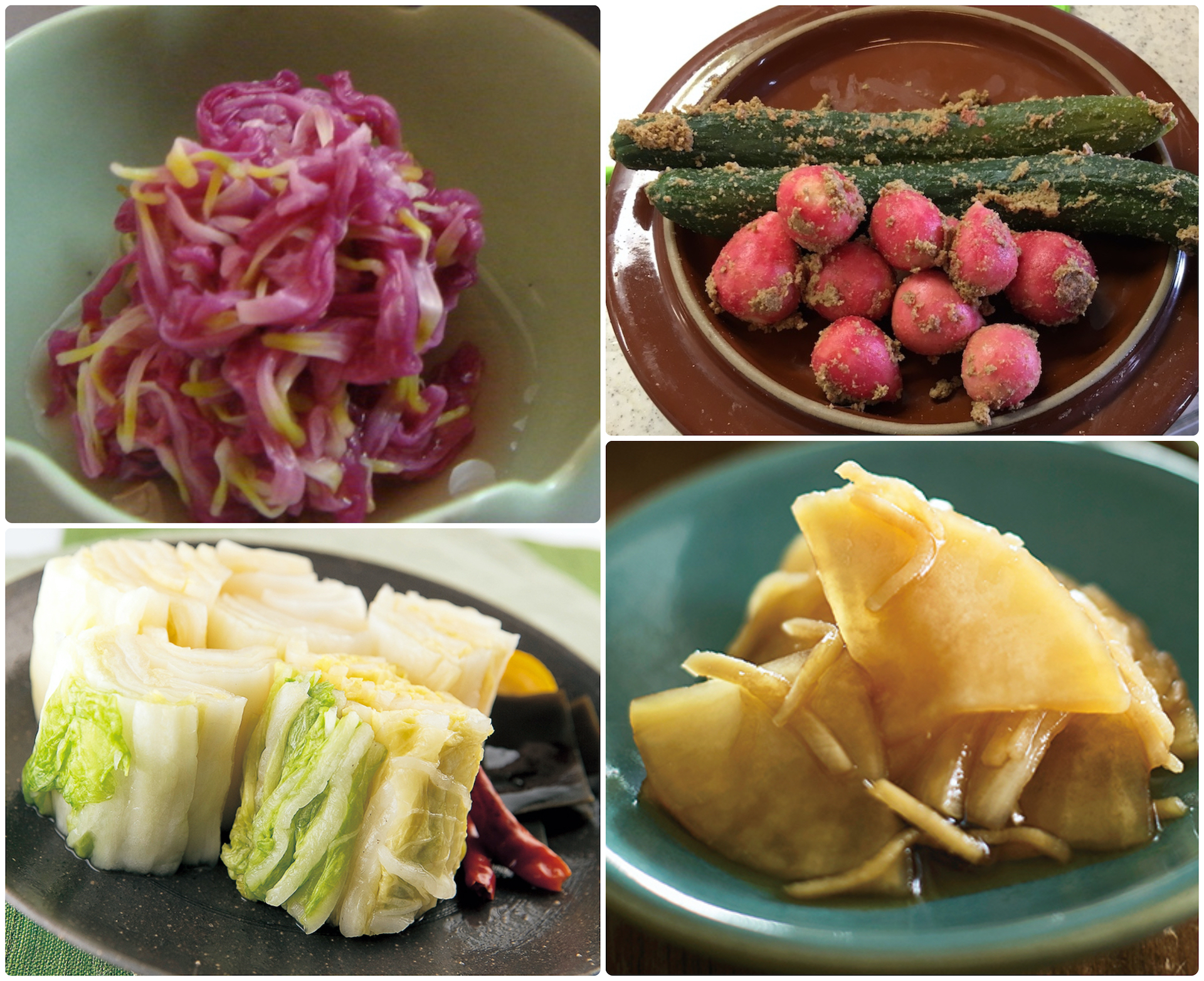2-Session TSUKÉMONO Workshop: December 2023

Two-Session Tsukémono Workshop
DECEMBER 1 (Friday) & DECEMBER 2 (Saturday), 2023.
Learn basic pickling methods:
-
-
- brining
- sweet vinegar-curing
- saké kasu-curing
- kōji-curing
- miso-immersion
- komé nuka-immersion
-
Class size is limited to 6 participants to provide the most effective learning environment.
Friday December 1 (6:30-8:30 pm) is a SUPPER Session that combines a tasting of more than a dozen tsukémono classics with hands-on preparation of several quick-and-easy “Impatient Pickles.” We also begin preparation of several other pickles to be completed the following day.
Saturday December 2 (10:30 am-4:00 pm) participants will make and take-home jars of several pickles such as kiku namasu (pickled chrysanthemum petals), hari hari-zuké (crisp daikon and ginger with a complex flavor profile: sweet, sour, spicy, salty). For lunch we feast on (miso) soup, rice (omusubi) and lots of pickles.
After lunch we conduct a comparative tasting of some key ingredients used to make tsukémono: salt, sugar, miso, vinegar, soy sauce, shio kōji, and saké kasu.
Both sessions are conducted entirely in A Taste of Culture’s Tokyo Kitchen
Depending upon the needs and requests of participants, menus can be vegan (plant-based foods exclusively), vegetarian (vegetables + eggs) or include fish, poultry and some meat. Make your preference known when you reserve your place below.
Tuition ¥12,500 per person.
2-Session Workshop Program Request
Notes
Instruction at A Taste of Culture is in English. A Taste of Culture’s mission is to empower participants in the ways of the Japanese kitchen, providing them with basic skills and knowledge regarding traditional/classical cooking methods, equipment, ingredients, menu planning, and food presentation. By focusing on essential foodstuffs and procedures, program participants will be able to re-create authentic Japanese cuisine no matter where in the world they may be.
A Taste of Culture does not offer instruction in the preparation of raw-fish dishes. The topic of selecting and handling a variety of fish to be consumed raw, is a subject that I believe is beyond the scope of any short program I could deliver.
Please see our Cancellation Policy and other FAQs.
